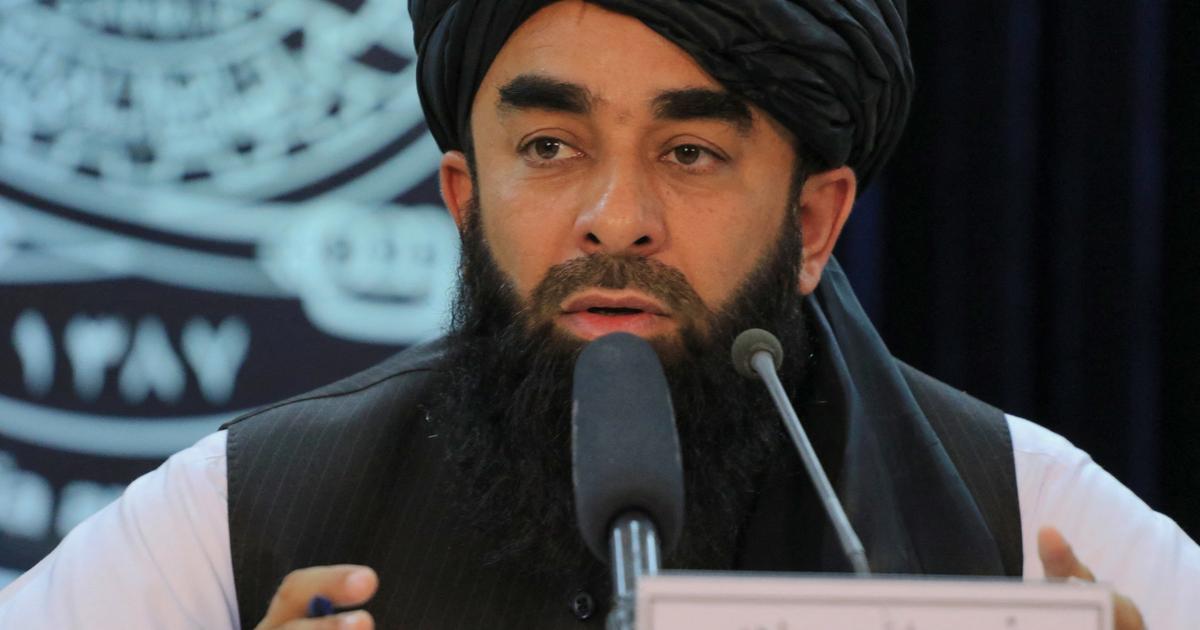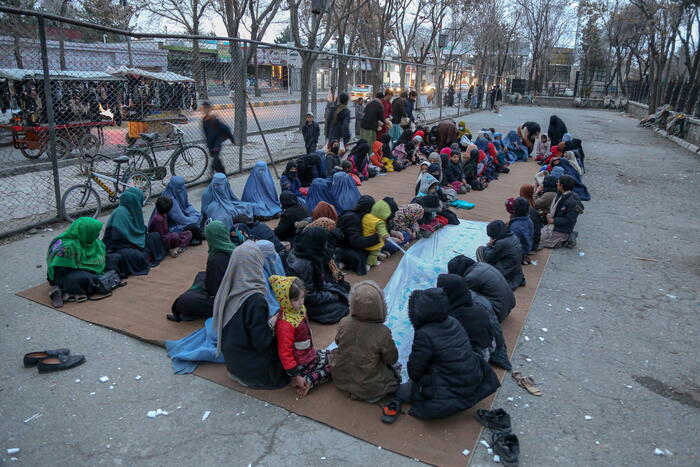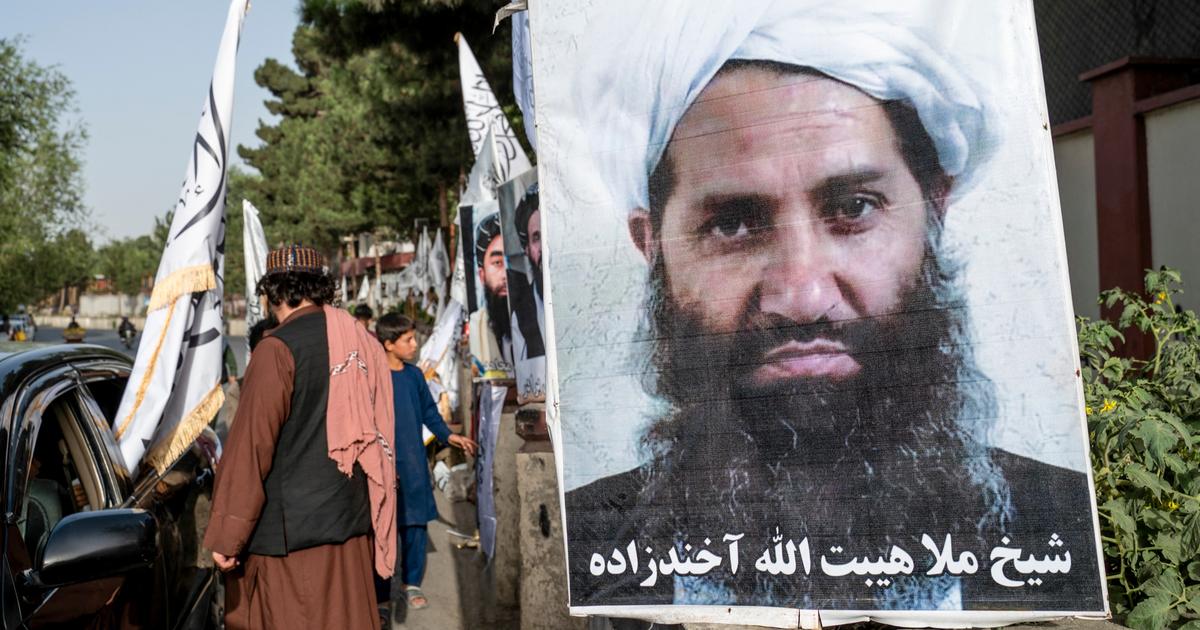One year of the Taliban in Afghanistan: Kubra Khademi celebrates the women
Created: 2022-08-16Updated: 2022-08-16, 4:16 p.m
By: Michael Schleicher
Powerful: Like Moses in the Old Testament, this “common woman,” as Kubra Khademi calls her, shares the sea in her 2020 picture.
© Bertrand Michau / © VG Bild-Kunst, Bonn 2022
A year ago, the Taliban took power in Afghanistan.
Women and girls suffer particularly from the Islamists.
Afghan artist Kubra Khademi celebrates femininity in her work.
It's a bitter anniversary, amidst all the other news of current crises, wars: A year ago, the Taliban took power in Afghanistan.
Human rights mean nothing to militant Islamists;
Women and girls feel this particularly brutally.
For example, Beat Wehrle, CEO of Terre des Hommes, states: “Women's rights to education, work and freedom of movement are severely restricted and in many cases even completely abolished.
A whole generation of girls will not be able to complete their education.
Women and girls are still taking to the streets to protest.
They all risk arbitrary arrests.”
Kubra Khademi was born in Afghanistan in 1989
Kubra Khademi celebrates these and all other women.
The artist, born in 1989 in the Afghan province of Ghor, had to flee her country in 2015 after a fatwa was issued against her: On February 26, 2015, she became a "symbol of female resistance to religious fanaticism," as the book that has just been published says “Kubra Khademi – Political Bodies”
(Hirmer Verlag, Munich, 160 pages; 29.90 euros)
called.
The artist only walked through Kabul for eight minutes (after that the performance had to be stopped and Khademi taken to safety).
She wore a suit of armor over her clothes: breasts, buttocks and stomach were protected by the metal armor, but also emphasized.
That was too much for the men in the streets.
A film sequence documents that it wasn't just the Taliban who harassed, insulted and threatened Kubra Khademi here.
The artist escaped to Paris, where she lives and works today.
Bodies are political.
Unfortunately, still.
The Afghan woman had to experience this firsthand.
In her artistic work, however, she encounters this sad realization with self-confidence, humor and with enormous knowledge of art history and mythology.
This not only makes her work politically relevant, but also elevates it beyond the current.
Khademi paints women.
Mostly with gouache colors on paper.
Mostly naked.
However, this nudity is rarely meant sexually - but rather an expression of a matter of course that should no longer be discussed in 2022: look here, here we are!
"I would like to insist as much as possible on her female identity," explains the painter.
"They are triumphant and very present."
Kubra Khademi: Your work is highly political and feminist
In this way, she develops a – stylized, harmonious – alternative to the male world, which relentlessly sets the pace, not only in Afghanistan.
"It is only logical for our company to finally guarantee worldwide publishing distribution for Kubra Khademi after personalities of women's power like Frida Kahlo or Angela Davis," says Hirmer publisher Thomas Zuhr.
"She is an artist who, through her clear and liberated visual language, provides important and new food for thought in her highly political, feminist work."
Hope for Afghanistan?
The paintings collected in the book, however, only appear naïve at first glance.
Of course, the artist is aware of the power of her pictures when she not only shows women (with a special focus on mothers) in everyday situations, but also paints well-known subjects from art history and religion with a female cast: a woman who, like Moses, parts the sea;
a pietà in which a mother mourns her daughter, or a glimpse into a parliament with politicians who treat each other affectionately.
Lovingly.
Coats of arms and flags reveal the great hope Kubra Khademi has for her homeland.
In spite of everything.


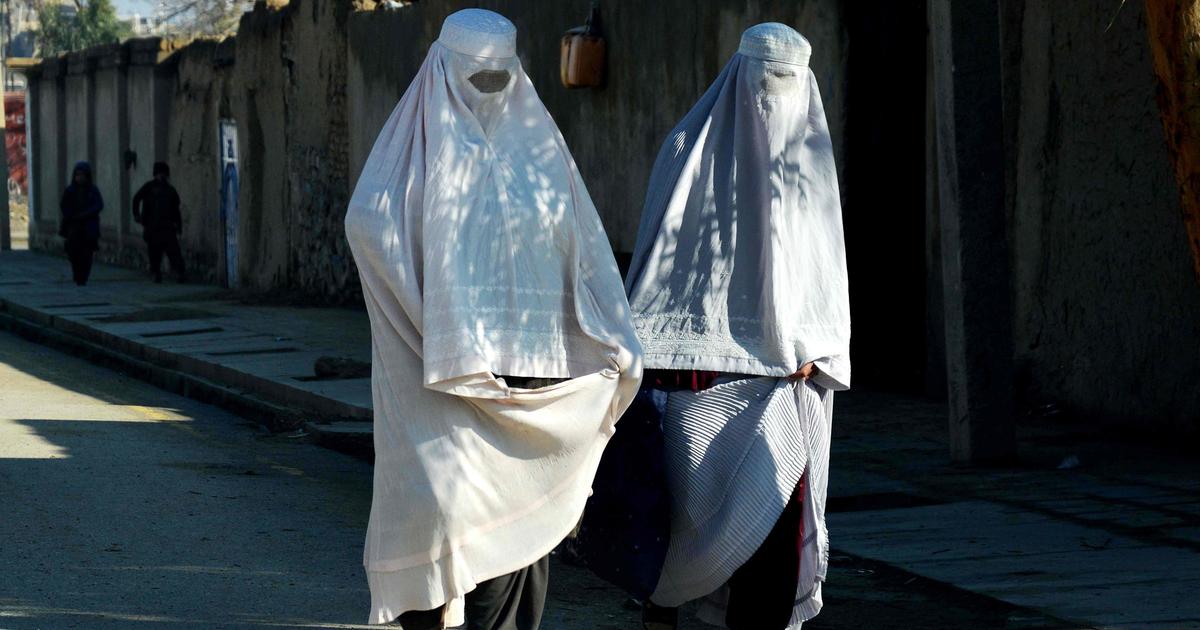

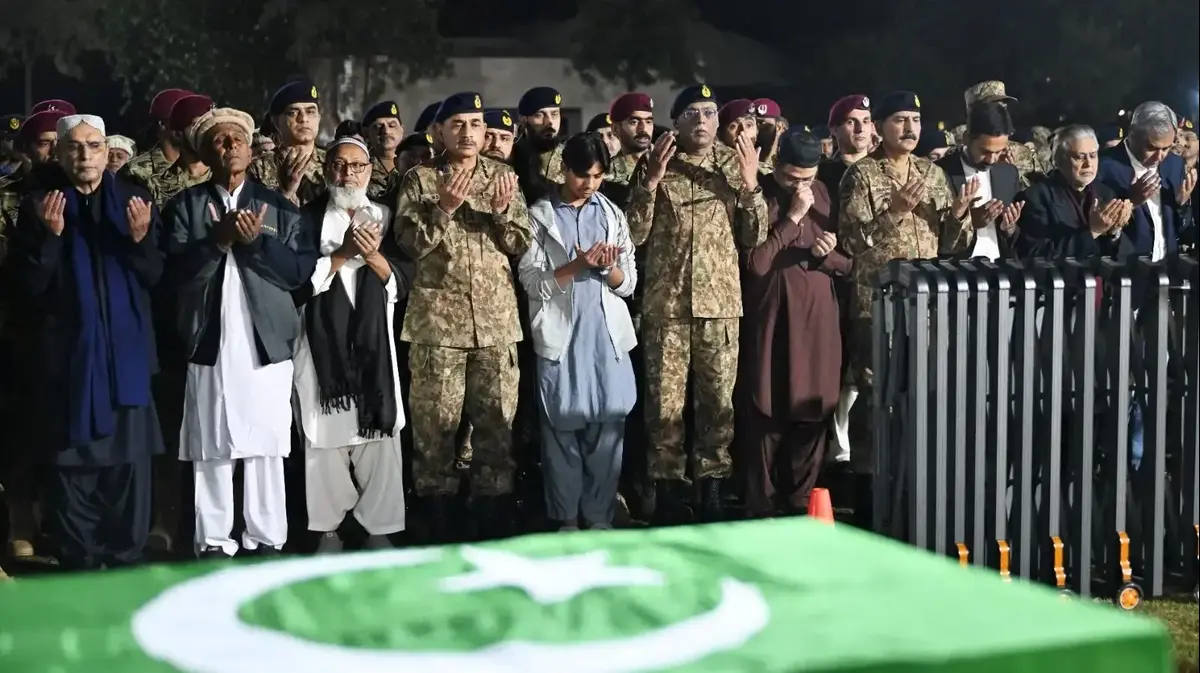
/cloudfront-eu-central-1.images.arcpublishing.com/prisa/KA3LQ5ZEAFEQXOIZXJEEVDUZUQ.jpg)
